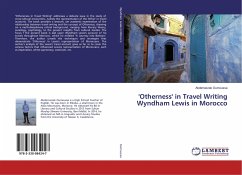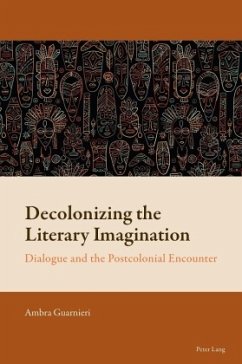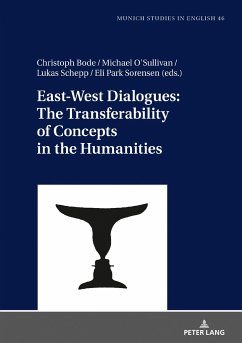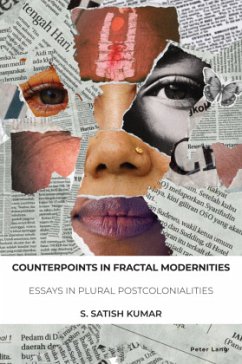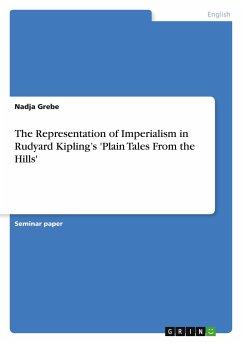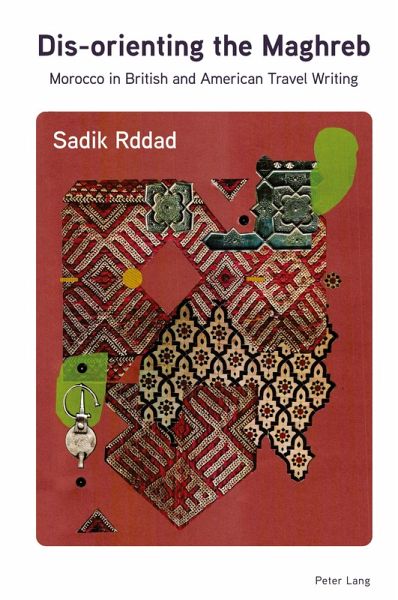
Dis-orienting the Maghreb
Morocco in British and American Travel Writing
Versandkostenfrei!
Versandfertig in 6-10 Tagen
66,95 €
inkl. MwSt.
Weitere Ausgaben:

PAYBACK Punkte
0 °P sammeln!
From the Foreword:«Dis-orienting the Maghreb offers a valuable contribution to both scholarship on travel literature and postcolonial studies. Rddad's emphasis on geographical specificity and his focus on the often-neglected travel narratives of Morocco provide a much-needed corrective to the prevailing trends in the field that privilege temporality and continuity. His work not only broadens our understanding of Orientalist discourse but also contributes to the study of travel literature by highlighting the diversity and complexity of Western representations of the Maghreb. His nuanced approa...
From the Foreword:
«Dis-orienting the Maghreb offers a valuable contribution to both scholarship on travel literature and postcolonial studies. Rddad's emphasis on geographical specificity and his focus on the often-neglected travel narratives of Morocco provide a much-needed corrective to the prevailing trends in the field that privilege temporality and continuity. His work not only broadens our understanding of Orientalist discourse but also contributes to the study of travel literature by highlighting the diversity and complexity of Western representations of the Maghreb. His nuanced approach invites readers and scholars alike to reconsider the ways in which we engage with and interpret the rich tradition of travel writing that have shaped our understanding of the world.»
(Ali Behdad, John Charles Hills Chair in Literature, Professor of English and Comparative Literature, and the Director of the Center for Near Eastern Studies at University ofCalifornia, Los Angeles)
This book rethinks the encounters between Morocco and the West by exploring the ideological and historical foundations of the discursive shifts in Anglo-American travel writing on Morocco.
Four major paradigm shifts are identified that characterize travel writing's production of knowledge in the late nineteenth and early twentieth centuries, an era which started placing Morocco in the narrative of Western civilization. The national(ist) turn considers the ways in which Philip Durham Trotter's Our Mission to the Court of Marocco (1880) foregrounds a parochial patriotic rhetoric founded on the notion of the «British priority discourse. » The secular turn examines Frances Macnab's A Ride in Morocco (1902) to underscore the supremacy of the secular intent of colonialism over the religious and missionary channels in the dissemination of modernism. The transnational turn examines George Edmond Holt's Morocco the Piquant (1914) in terms ofthe cultural and ideological transformations of discursive forms in the USA and Morocco in the era of transnationalism. Finally, the imperial turn discusses Edith Wharton's In Morocco (1920) to reveal the anxieties of a discourse trapped between the advocacy of American nationalism and French colonialism.
«Dis-orienting the Maghreb offers a valuable contribution to both scholarship on travel literature and postcolonial studies. Rddad's emphasis on geographical specificity and his focus on the often-neglected travel narratives of Morocco provide a much-needed corrective to the prevailing trends in the field that privilege temporality and continuity. His work not only broadens our understanding of Orientalist discourse but also contributes to the study of travel literature by highlighting the diversity and complexity of Western representations of the Maghreb. His nuanced approach invites readers and scholars alike to reconsider the ways in which we engage with and interpret the rich tradition of travel writing that have shaped our understanding of the world.»
(Ali Behdad, John Charles Hills Chair in Literature, Professor of English and Comparative Literature, and the Director of the Center for Near Eastern Studies at University ofCalifornia, Los Angeles)
This book rethinks the encounters between Morocco and the West by exploring the ideological and historical foundations of the discursive shifts in Anglo-American travel writing on Morocco.
Four major paradigm shifts are identified that characterize travel writing's production of knowledge in the late nineteenth and early twentieth centuries, an era which started placing Morocco in the narrative of Western civilization. The national(ist) turn considers the ways in which Philip Durham Trotter's Our Mission to the Court of Marocco (1880) foregrounds a parochial patriotic rhetoric founded on the notion of the «British priority discourse. » The secular turn examines Frances Macnab's A Ride in Morocco (1902) to underscore the supremacy of the secular intent of colonialism over the religious and missionary channels in the dissemination of modernism. The transnational turn examines George Edmond Holt's Morocco the Piquant (1914) in terms ofthe cultural and ideological transformations of discursive forms in the USA and Morocco in the era of transnationalism. Finally, the imperial turn discusses Edith Wharton's In Morocco (1920) to reveal the anxieties of a discourse trapped between the advocacy of American nationalism and French colonialism.





